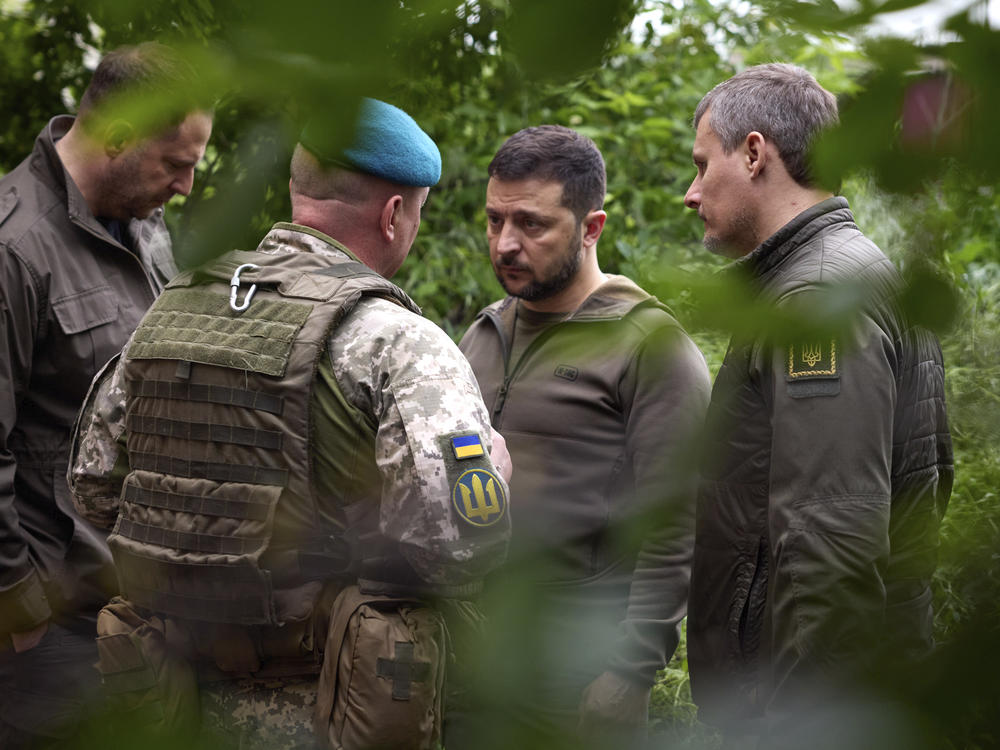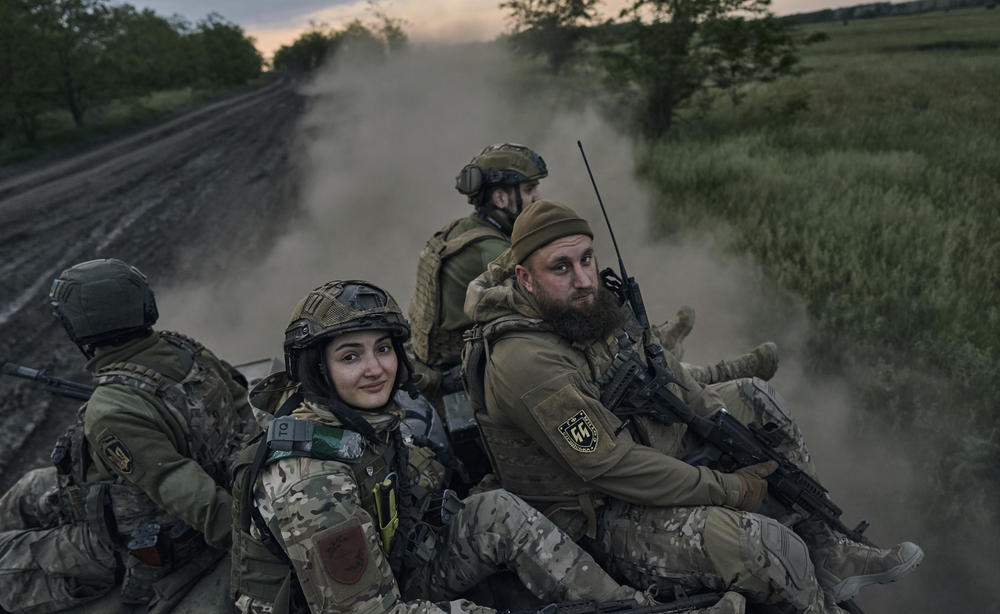Section Branding
Header Content
What are realistic expectations for Ukraine's military offensive?
Primary Content
Major military operations are normally shrouded in secrecy. But Ukraine's planned offensive against Russia has been part of a lively public debate for months. This has created a wide range of expectations.
"In the best case, the Ukrainians really liberate a lot of territory, perhaps even pushing the Russians back to the line on Feb. 23 of last year before this massive Russian invasion began. That would be a huge blow to Moscow," said Steven Pifer, a former U.S. ambassador to Ukraine who's now at Stanford University's Center for International Security and Cooperation
This scenario would reverse Russia's most significant military gain over the past year, the creation of a land bridge connecting Russian troops in eastern Ukraine — the Donbas region — to Russian forces in the south — in Crimea.
But Pifer acknowledges this is pretty optimistic.
"Probably a more realistic expectation is that the Ukrainians take a good chunk of territory back, something that would be seen in the West as underscoring that Ukraine has the potential to win," he added.
The U.S. and other NATO nations are sending Ukraine tanks, drones and artillery — giving it more firepower than ever — as it plans this offensive.
The West also recently pledged to meet Ukraine's long-standing request for F-16 fighter jets, though the Ukrainian air force must still learn how to fly and maintain these American planes, a process expected to take months.
Meanwhile, this lengthy Ukrainian buildup has given Russia time to reinforce vulnerable spots in the south and east, where Ukraine is most likely to attack.
Satellite photos show the Russians digging fresh trenches to defend possible Ukrainian approaches to Crimea, and Russia has reportedly been sending in additional troops to the region.
When will the offensive begin?
For all the public chatter about the offensive, Ukraine has kept secret the time it plans to launch the operation in earnest. Ukrainian political and military leaders are repeatedly asked this question, and they have a pat response: "soon."
Some analysts say the initial stages of the offensive could already be underway, a reference to a spate of surprise, relatively small attacks inside Russia.
This includes the pair of drones that hit the Kremlin in Moscow earlier this month, causing only minor physical damage to the domed roof of a building, but delivering a psychological jolt to the Russians.
Ukraine is intentionally vague about attacks inside Russia, neither confirming nor denying involvement. But there's an almost universal belief Ukraine is responsible, and this is a way of keeping Russia off-balance in advance of the offensive.
Michael Kofman, who's at the Center for Naval Analyses, a U.S. government-funded think tank, believes a Ukrainian offensive can succeed. But he said it will almost certainly be more challenging than the one last fall that drove Russian troops out of substantial areas in the northeast and the south.
"It may require multiple offensives on multiple fronts and will likely be conducted over the period of several months rather than days or weeks," Kofman said.
"I think that Russian forces have to be seen to be decisively beaten in this operation. Ukraine needs to demonstrate in this phase of the war that it's still capable of breaking through Russian lines," he added.
Ukraine's offensive comes with big risks. Angela Stent at Georgetown University said Ukraine needs to advance on the battlefield to maintain the strong level of political and military support it's receiving from the West.
"If they don't show much success, it's going to be much harder to justify supplying all the weapons," Stent said. "I think Ukraine could say, if they take back some territory, 'Look, we're making progress. It's very tough. We still need the equipment, the money, and please send us more.'"
Kofman noted that Ukraine and its Western supporters could well have different definitions of success.
"The honest answer is, I think we'll know it when we see it," he said. "And it will to some extent be subjectively interpreted by different capitals in Europe and amongst Ukraine's other Western partners."
An offensive likely to be big, but unlikely to end the war
The analysts agree on another key point. Regardless of how this Ukrainian offensive plays out, they don't think it will bring the war to a close.
They see Russian leader Vladimir Putin playing the long game, believing he can wear down Ukraine's military and sap the will of the West to provide sustained support.
"Russia has three times the population of Ukraine, so the Russians still have hundreds of thousands of young men, cannon fodder, whom they can conscript," Stent said.
"Ukraine doesn't have endless numbers of young men it can send to the front. Russia could go on putting people on the battlefield longer than Ukraine can," she added.
Steven Pifer, meanwhile, was a long-time diplomat. But he doesn't think now is the right time for peace talks.
"I believe at some point there will be a negotiation in this war between Kyiv and Moscow, but not now and not while the Russians have shown absolutely no indication that they're serious," he said.
"You'll see people suggesting, 'Well, it's time to encourage the Ukrainians to negotiate. I don't agree with that," he added. "I worry about the people who are prepared to start talking about what kind of territory Ukraine should cede to Russia, even though it's not their territory to give away."
Ukraine has repeatedly surprised the world throughout the war, Pifer said. Be prepared, he added, to be surprised again.
Greg Myre is an NPR national security correspondent. Follow him @gregmyre1.
Copyright 2023 NPR. To see more, visit https://www.npr.org.


